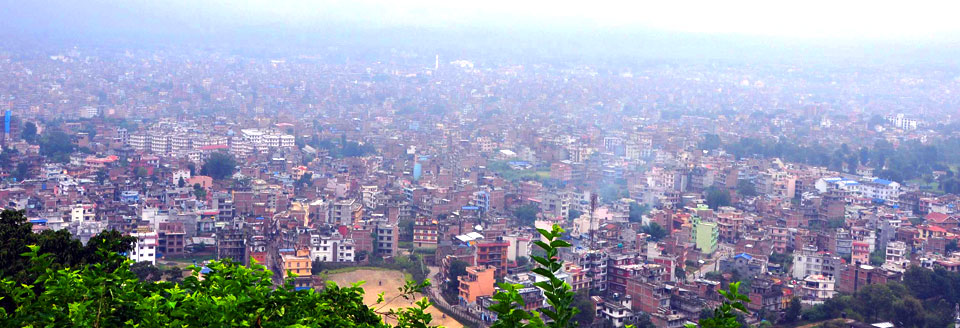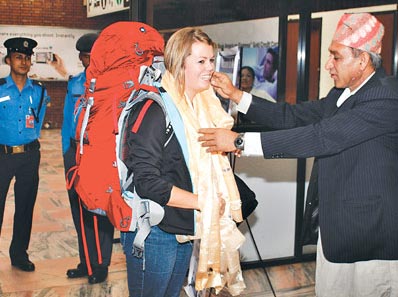

Tourism industry seeks 'no banda' promises

Tourism stakeholders on Friday said the country needed a commitment from the political leaders that they would abandon the tendency to organise strikes, as it could dampen the burgeoning tourism industry in Nepal.
Travel trade entrepreneurs fear that the strikes likely to be imposed during the election by opposing parties could have an adverse impact on the industry. “The country is again in need of a common commitment from political party leaders not to organise strikes,” said Ramesh Dhamala, president of the Trekking Agencies Association of Nepal, speaking at the 34th World Tourism Day (WTD) function in Kathmandu.
In 2011, 22 political parties signed a commitment letter agreeing not to organise strikes or any form of protest that would directly impact the Nepal Tourism Year campaign. The campaign had targeted to host 1 million tourists. Although the target was not achieved, it was considered successful in garnering political understanding among leaders.
“It is evident that strikes cause big damage to any country’s tourism. It restricts travellers from visiting the country, which in turn will dent the country’s image,” said Sushil Ghimire, secretary of the Ministry of Culture, Tourism and Civil Aviation. He added that many challenges lay ahead for the country’s tourism.
“We are serious on issues such as the decline in the length of stay and spending of tourists,” Ghimire said, adding that the private sector and other stakeholders should now market Nepal in a different way.
According to him, the government has been focusing on diversifying destinations, while he admitted that it was a major failure of the government not providing sufficient aircraft to Nepal Airlines Corporation (NAC). However, many things are on track now, he added. “An aircraft purchase agreement to boost NAC’s international fleet has been completed; and for its domestic fleet expansion, we are at the final stages of bringing Chinese aircraft.”
Other works in progress are the upgrading of Bhairahawa Airport to Gautam Buddha Regional International Airport and the construction of another regional international airport in Pokhara.
Meanwhile, the private sector has urged the government to utilise the funds provided by bilateral and multilateral donors for the tourism sector in coordination with themselves. They also pointed out that Nepal’s tourism branding has not been so effective, while the delivery of other services has been too poor to attract tourists. The theme for this year’s WTD- Tourism and Water: Protecting our Common Future-highlights the role of tourism in water access and shines a spotlight on the actions currently being taken to contribute to a more sustainable water future and the challenges ahead.
The day is being marked across the globe in support of the United Nations International Year of Water Cooperation. Three tourists who arrived in Nepal on Friday morning were honoured at Tribhuvan International Airport on the occasion of WTD. A cultural procession was organised jointly by 40 tourism organisations to increase public awareness about the importance of tourism as part of the celebrations of WTD. The rally started from Thamel and concluded at Basantapur after going through Durbar Marg, Ratna Park and New Road.
Hotels and restaurants across the country also provided discounts to tourists to mark the day. In the last decade, tourist arrivals in Nepal have swelled 137 percent to 803,092 in 2012.
source: the kathmandu post,28 Sep 2013
photo: The Kathmandu post








